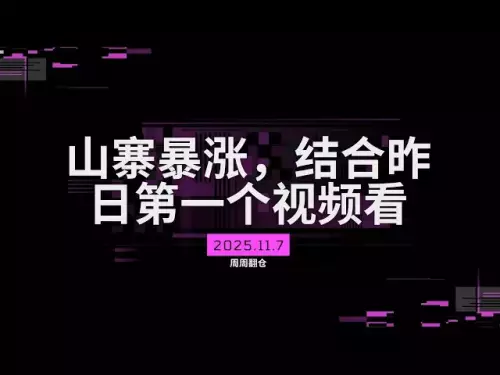-
 bitcoin
bitcoin $105968.894684 USD
4.17% -
 ethereum
ethereum $3639.320047 USD
7.62% -
 tether
tether $1.000339 USD
0.06% -
 xrp
xrp $2.407774 USD
5.96% -
 bnb
bnb $1011.704193 USD
2.28% -
 solana
solana $166.942754 USD
6.37% -
 usd-coin
usd-coin $1.000143 USD
0.03% -
 tron
tron $0.291515 USD
0.25% -
 dogecoin
dogecoin $0.181682 USD
4.06% -
 cardano
cardano $0.585450 USD
4.54% -
 hyperliquid
hyperliquid $42.099968 USD
5.20% -
 chainlink
chainlink $16.160745 USD
5.45% -
 zcash
zcash $645.269648 USD
12.96% -
 bitcoin-cash
bitcoin-cash $507.430338 USD
2.80% -
 stellar
stellar $0.290357 USD
3.69%
What are governance tokens and how do they give holders power in a DAO?
Governance tokens empower holders to vote on key decisions in DAOs, balancing decentralized control with risks like voter apathy and centralization.
Nov 09, 2025 at 08:40 pm
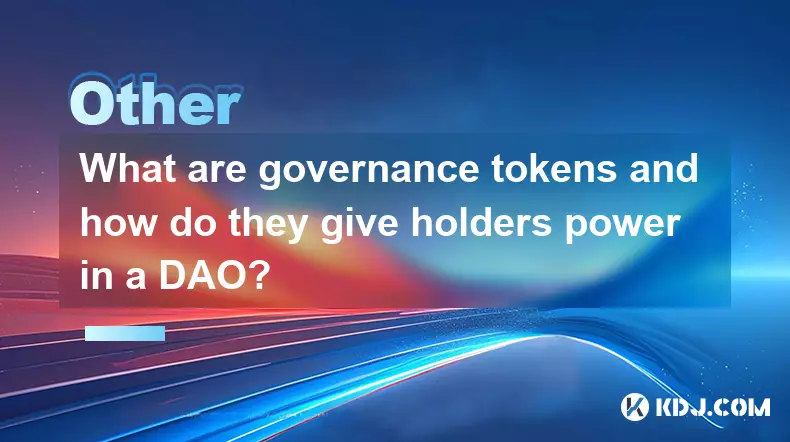
Understanding Governance Tokens in the Cryptocurrency Ecosystem
1. Governance tokens are digital assets that grant holders the right to participate in decision-making processes within decentralized autonomous organizations (DAOs). These tokens function as a mechanism for distributing control across a community rather than concentrating authority in a central entity. Each token typically represents a voting share, allowing owners to influence protocol upgrades, treasury allocations, and policy changes.
2. Unlike traditional cryptocurrencies focused on value transfer or speculative investment, governance tokens emphasize participation. Projects issue these tokens to decentralize leadership and incentivize users to contribute to the ecosystem’s long-term success. Token distribution often occurs through liquidity mining, airdrops, or direct purchases, ensuring broad ownership among active participants.
3. The power of governance tokens lies in their ability to align incentives. Holders benefit not only from potential price appreciation but also from shaping the direction of the platform they are invested in. This dual incentive fosters engagement and encourages stakeholders to act in the best interest of the network’s sustainability and growth.
4. Voting mechanisms vary across DAOs. Some platforms use simple one-token-one-vote models, while others implement quadratic voting or delegated voting systems to prevent dominance by large token holders. Proposals can range from technical adjustments like gas fee structures to strategic decisions such as partnerships or new product launches.
5. Despite their democratic appeal, governance tokens are not without risks. Centralization concerns arise when whales—individuals or entities holding large amounts—can sway votes disproportionately. Additionally, low voter turnout remains a persistent issue, with many token holders choosing not to participate, potentially undermining the legitimacy of decisions made.
The Role of Voting Power in Decentralized Decision-Making
1. Voting power in a DAO is directly tied to the number of governance tokens an individual holds. When a proposal is submitted, token holders can cast their votes over a defined period, usually through a dedicated interface integrated with their digital wallet.
2. Some DAOs require a minimum quorum—a threshold of total votes cast—for a proposal to be valid. This prevents small groups from enacting changes without broader community support. If quorum isn't met, even a majority vote may fail to pass the proposal.
3. Certain protocols enhance governance by introducing time-locked execution. Approved proposals do not take effect immediately, allowing time for community review and potential intervention if vulnerabilities or malicious intent are detected.
4. Delegation plays a critical role in improving governance efficiency. Users who lack the time or expertise to evaluate every proposal can delegate their voting rights to trusted members or specialized delegates, increasing overall participation without requiring universal involvement.
5. Transparency is enforced through blockchain records. All proposals, votes, and outcomes are immutably stored on-chain, enabling full auditability. This openness helps build trust and accountability within the DAO structure.
Risks and Challenges Associated with Governance Tokens
1. A significant challenge is voter apathy. Many token holders prioritize financial returns over governance responsibilities, leading to low engagement rates and decisions being shaped by a small subset of active participants.
2. Concentration of voting power in the hands of early investors or development teams can undermine decentralization goals. In some cases, core developers or venture capital firms retain substantial token reserves, giving them outsized influence despite public claims of community governance.
3. Governance attacks are a growing concern. Malicious actors may accumulate tokens solely to push harmful proposals, such as redirecting treasury funds or altering protocol rules to their advantage. Flash loan attacks have been used in the past to temporarily amass voting power.
4. Regulatory uncertainty looms over governance tokens. Authorities like the U.S. Securities and Exchange Commission (SEC) have scrutinized whether these tokens qualify as securities, which could impose legal obligations on issuers and restrict trading in certain jurisdictions.
5. Poorly designed governance systems may lead to gridlock or short-termism. Without clear frameworks for dispute resolution or long-term vision alignment, DAOs risk making reactive decisions that compromise protocol integrity.
Frequently Asked Questions
What happens if I sell my governance tokens?Selling your governance tokens means you forfeit your voting rights in the DAO. Once transferred, the new holder assumes the ability to participate in future decisions. Your influence over the protocol ends at the point of sale.
Can governance tokens generate passive income?Some governance tokens offer staking rewards or revenue-sharing mechanisms, but this varies by project. Their primary purpose is voting power, not income generation. Any yield comes from supplementary features built into the ecosystem.
How are governance proposals created?Any token holder can usually submit a proposal, though some DAOs require a deposit in the native token to prevent spam. The proposal then undergoes a review period before entering the formal voting stage, where it must meet approval thresholds to pass.
Are all DAOs powered by governance tokens?Most operate using governance tokens, but alternative models exist. Some rely on reputation-based voting or multi-signature wallets managed by core contributors. However, token-based governance remains the dominant approach in decentralized finance (DeFi) and Web3 projects.
Disclaimer:info@kdj.com
The information provided is not trading advice. kdj.com does not assume any responsibility for any investments made based on the information provided in this article. Cryptocurrencies are highly volatile and it is highly recommended that you invest with caution after thorough research!
If you believe that the content used on this website infringes your copyright, please contact us immediately (info@kdj.com) and we will delete it promptly.
- BlockDAG's Value Era: Institutional Backing Ushers in a New Crypto Dawn
- 2025-11-10 13:25:26
- Trump, Challenge Coins, and NFL Fans: A New York Minute Take
- 2025-11-10 13:25:26
- ORDER $PIZZA? Trader Verification & Avoiding Rug Pulls in the Wild West of Crypto
- 2025-11-10 13:25:26
- XRP ETFs, Airdrops, and CPI Data: What's Shaking in the Crypto World?
- 2025-11-10 13:30:02
- Pudgy Penguins Poised for a Bull Breakout: Price Prediction and What's Fueling the Hype
- 2025-11-10 13:30:02
- Montreal-Est Councillor Election Decided by Coin Toss: A Quirky Twist in Local Politics
- 2025-11-10 13:35:01
Related knowledge
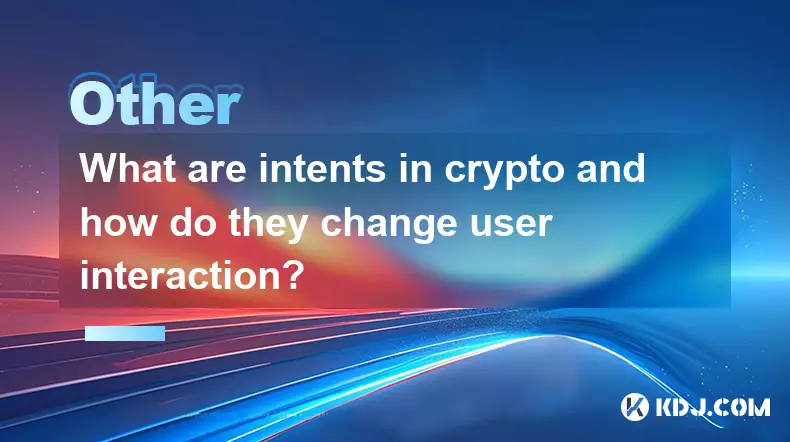
What are intents in crypto and how do they change user interaction?
Nov 09,2025 at 09:00am
Understanding the Role of Decentralized Exchanges in Modern Crypto Trading1. Decentralized exchanges, commonly known as DEXs, have reshaped how trader...
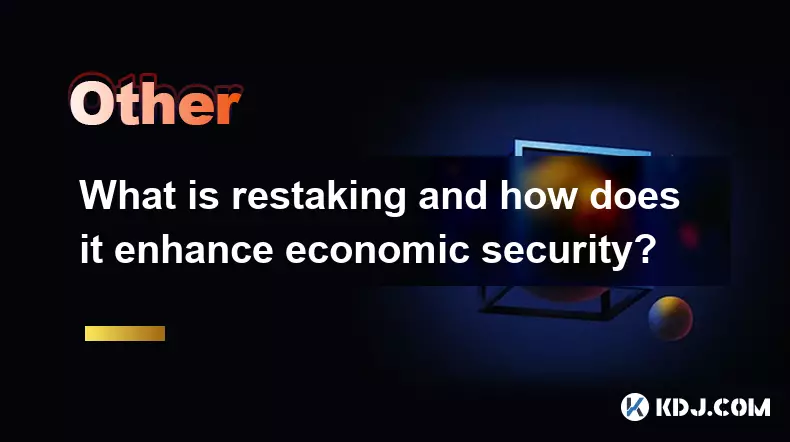
What is restaking and how does it enhance economic security?
Nov 09,2025 at 11:40pm
Understanding Restaking in the Blockchain Ecosystem1. Restaking refers to the process where users who have already staked their tokens in a proof-of-s...
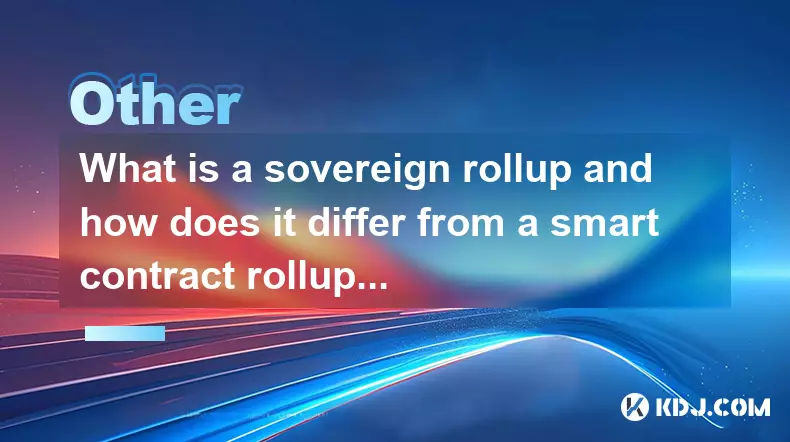
What is a sovereign rollup and how does it differ from a smart contract rollup?
Nov 10,2025 at 09:00am
Understanding Sovereign Rollups1. A sovereign rollup operates as an independent blockchain layer that leverages the data availability of a base layer,...
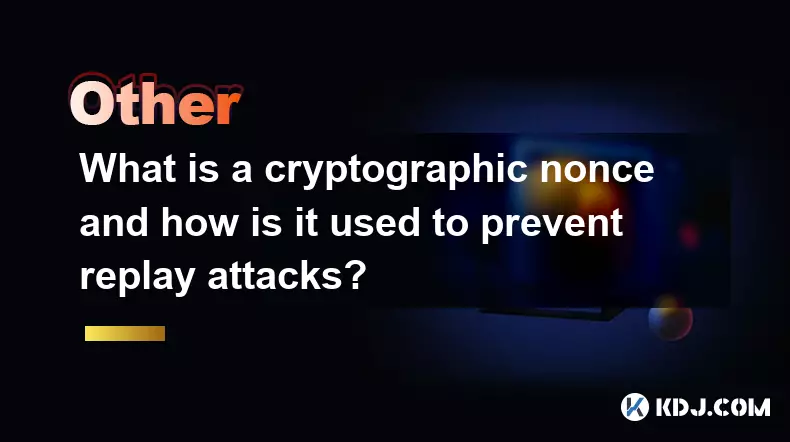
What is a cryptographic nonce and how is it used to prevent replay attacks?
Nov 08,2025 at 05:00pm
Understanding Cryptographic Nonces in Blockchain Systems1. A cryptographic nonce is a number used only once within a specific cryptographic communicat...
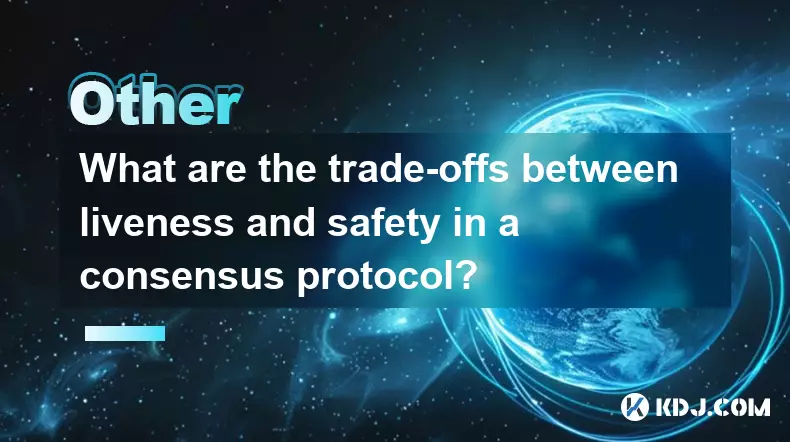
What are the trade-offs between liveness and safety in a consensus protocol?
Nov 09,2025 at 12:20pm
Understanding the Role of Liquidity Pools in Decentralized Finance1. Liquidity pools are foundational components within decentralized exchanges (DEXs)...

What is a call data in an Ethereum transaction and how is it used?
Nov 09,2025 at 01:59am
Understanding Call Data in Ethereum Transactions1. Call data refers to the information sent along with a transaction on the Ethereum network that spec...

What are intents in crypto and how do they change user interaction?
Nov 09,2025 at 09:00am
Understanding the Role of Decentralized Exchanges in Modern Crypto Trading1. Decentralized exchanges, commonly known as DEXs, have reshaped how trader...

What is restaking and how does it enhance economic security?
Nov 09,2025 at 11:40pm
Understanding Restaking in the Blockchain Ecosystem1. Restaking refers to the process where users who have already staked their tokens in a proof-of-s...

What is a sovereign rollup and how does it differ from a smart contract rollup?
Nov 10,2025 at 09:00am
Understanding Sovereign Rollups1. A sovereign rollup operates as an independent blockchain layer that leverages the data availability of a base layer,...

What is a cryptographic nonce and how is it used to prevent replay attacks?
Nov 08,2025 at 05:00pm
Understanding Cryptographic Nonces in Blockchain Systems1. A cryptographic nonce is a number used only once within a specific cryptographic communicat...

What are the trade-offs between liveness and safety in a consensus protocol?
Nov 09,2025 at 12:20pm
Understanding the Role of Liquidity Pools in Decentralized Finance1. Liquidity pools are foundational components within decentralized exchanges (DEXs)...

What is a call data in an Ethereum transaction and how is it used?
Nov 09,2025 at 01:59am
Understanding Call Data in Ethereum Transactions1. Call data refers to the information sent along with a transaction on the Ethereum network that spec...
See all articles





















![The Graph Price Prediction [GRT Crypto Price News Today] The Graph Price Prediction [GRT Crypto Price News Today]](/uploads/2025/11/07/cryptocurrencies-news/videos/690d4df44fe69_image_500_375.webp)



